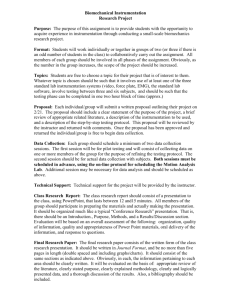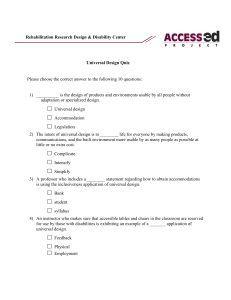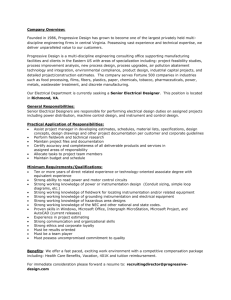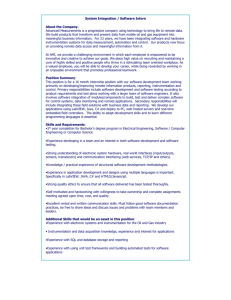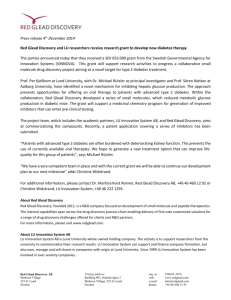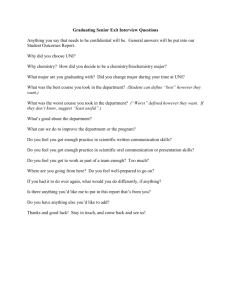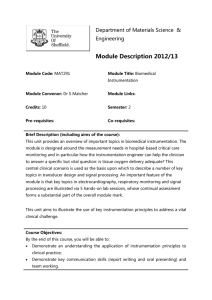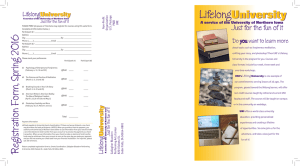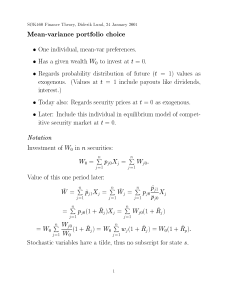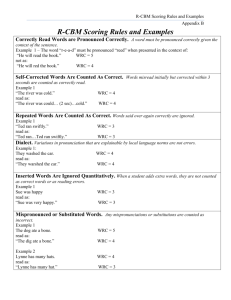Laboratory Instrumentation and Test Interpretation
advertisement
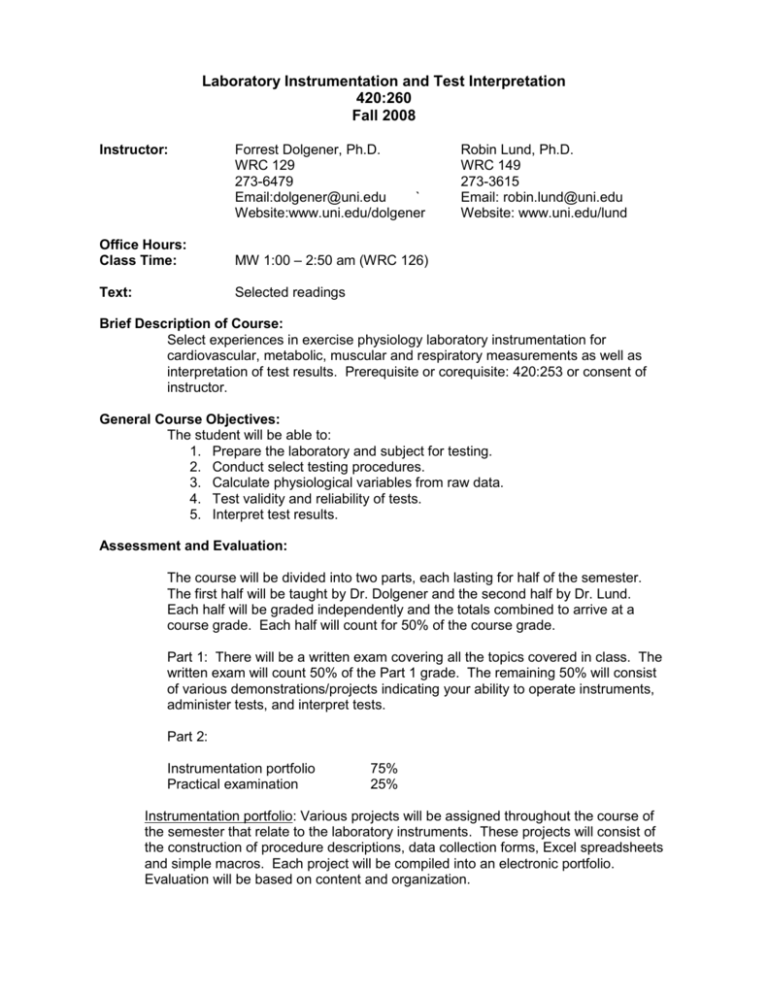
Laboratory Instrumentation and Test Interpretation 420:260 Fall 2008 Instructor: Forrest Dolgener, Ph.D. WRC 129 273-6479 Email:dolgener@uni.edu ` Website:www.uni.edu/dolgener Office Hours: Class Time: MW 1:00 – 2:50 am (WRC 126) Text: Selected readings Robin Lund, Ph.D. WRC 149 273-3615 Email: robin.lund@uni.edu Website: www.uni.edu/lund Brief Description of Course: Select experiences in exercise physiology laboratory instrumentation for cardiovascular, metabolic, muscular and respiratory measurements as well as interpretation of test results. Prerequisite or corequisite: 420:253 or consent of instructor. General Course Objectives: The student will be able to: 1. Prepare the laboratory and subject for testing. 2. Conduct select testing procedures. 3. Calculate physiological variables from raw data. 4. Test validity and reliability of tests. 5. Interpret test results. Assessment and Evaluation: The course will be divided into two parts, each lasting for half of the semester. The first half will be taught by Dr. Dolgener and the second half by Dr. Lund. Each half will be graded independently and the totals combined to arrive at a course grade. Each half will count for 50% of the course grade. Part 1: There will be a written exam covering all the topics covered in class. The written exam will count 50% of the Part 1 grade. The remaining 50% will consist of various demonstrations/projects indicating your ability to operate instruments, administer tests, and interpret tests. Part 2: Instrumentation portfolio Practical examination 75% 25% Instrumentation portfolio: Various projects will be assigned throughout the course of the semester that relate to the laboratory instruments. These projects will consist of the construction of procedure descriptions, data collection forms, Excel spreadsheets and simple macros. Each project will be compiled into an electronic portfolio. Evaluation will be based on content and organization. Practical Examination: The practical examination will involve the performance of three testing protocols to be determined by the instructor. Evaluation is based upon environment preparation, calibration, subject preparation, test administration and interpretation. Course Schedule: The following topics will be covered in this order. The amount of time spent on each topic is up to the discretion of the instructor. 1. Metabolic cart (Part 1) a. REE b. Oxygen cost c. VO2max 2. Lactate threshold (Part 1) 3. Body Composition (Part 1) 4. Wingate Test (Part 2) 5. Force, power, RFD and reactive strength (Part 2) a. Ballistic measurement system b. Force plate 6. Kinematic variables (Part 2) a. Dartfish b. Peak Final Grade: Letter grades will be assigned based on the following percentages: 93-100% A 90-92% A87-89% B+ 83-86% B 80-82% B77-79% C+ 73-76% C 70-72% C<70% F American with Disabilities Act: The American with Disabilities Act of 1990 (ADA) provides protection from discrimination for qualified individuals with disabilities. Students with a disability, who require assistance, will need to contact the office of disability Services (ODS) for coordination of academic accommodations. The office is located at 213 Student Services Center. Their phone number is 2732676.
